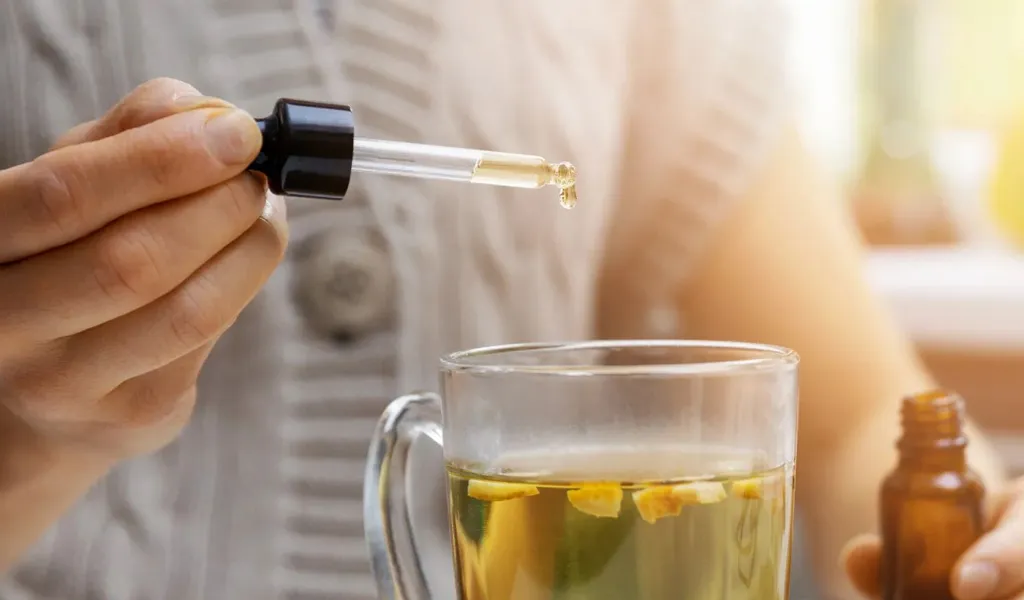CBD, or cannabidiol, has become a widely popular natural remedy for a variety of ailments, including pain, anxiety, and sleep disorders. As more people turn to CBD for relief, one of the most frequently asked questions is: “How much CBD should I take?” Finding the right dosage of CBD is crucial to ensure that you experience its benefits without any unnecessary side effects. However, there isn’t a one-size-fits-all answer to this question. CBD dosage is highly individualized, and it depends on several factors, including your body weight, metabolism, the condition you’re treating, and the concentration of CBD in the product you’re using.
In this comprehensive guide, we’ll break down everything you need to know about CBD dosages, including how to calculate your ideal dose, the different types of CBD products available, and tips on how to adjust your dosage for maximum effect.
What is CBD?
CBD, short for cannabidiol, is one of the many compounds found in the cannabis plant. Unlike its cousin THC (tetrahydrocannabinol), CBD is non-psychoactive, meaning it doesn’t produce the “high” associated with marijuana use. This makes CBD an appealing option for those looking for relief from various ailments without the mind-altering effects of THC.
CBD works by interacting with the body’s endocannabinoid system (ECS), a complex network of receptors that play a role in regulating various bodily functions, such as mood, pain, sleep, and immune response. By influencing these receptors, CBD can help restore balance to the ECS, which is often disrupted in conditions like chronic pain or anxiety.
Why is Finding the Right CBD Dosage Important?
Finding the right CBD dosage is essential for several reasons:
- Effectiveness: Taking too little CBD might not produce the desired therapeutic effects, while taking too much may lead to diminished benefits or unwanted side effects such as drowsiness or stomach upset.
- Individualized Response: People respond differently to CBD, so while one person may find relief with a low dose, another may require a higher dose for the same effect.
- Tolerability: Everyone’s body reacts differently to CBD, and finding the right dosage ensures you stay within a tolerable range, avoiding any adverse reactions while benefiting from CBD’s therapeutic properties.
Factors That Affect CBD Dosage
When determining the right CBD dosage, it’s important to consider the following factors:
- Body Weight and Composition
- Like many substances, CBD dosage is often proportional to body weight. Generally, individuals with a higher body mass may require higher doses to feel the effects of CBD compared to those with lower body mass.
- Metabolism
- Your metabolic rate can affect how quickly CBD is absorbed and processed by your body. People with faster metabolisms may require more frequent doses or higher amounts to maintain the same effects as someone with a slower metabolism.
- Severity of Condition
- The condition you’re treating will influence your ideal dosage. For instance, someone using CBD for mild anxiety might need a lower dose than someone managing chronic pain or severe inflammation.
- Desired Effects
- Are you using CBD for subtle relaxation, or are you looking for strong pain relief? Different goals can call for different dosages. It’s always recommended to start with a low dose and gradually increase it until the desired effect is achieved.
- Tolerance
- Over time, you might develop a tolerance to CBD, meaning that you may need to increase your dose to achieve the same effects. On the other hand, some people might experience stronger effects after consistent use and require less CBD over time.
- Type of CBD Product
- CBD comes in various forms, each with different bioavailability (the percentage of CBD that actually enters your bloodstream). Oils, tinctures, capsules, edibles, and topicals all affect how much CBD your body absorbs and how quickly it takes effect.
Types of CBD Products and Their Dosage Considerations
- CBD Oils and Tinctures
- Oils and tinctures are one of the most popular methods for taking CBD. They are absorbed sublingually (under the tongue) and usually take effect within 20 to 30 minutes. The concentration of CBD in oils can vary significantly, so it’s important to follow the dosing instructions provided by the manufacturer. Most oils come with a dropper, allowing for easy measurement. Dosages typically range from 5mg to 50mg of CBD per serving.
- CBD Capsules and Edibles
- Capsules and edibles (such as gummies) offer a convenient and discreet way to take CBD, but they take longer to take effect since they must pass through the digestive system. This also means that the bioavailability is slightly lower, as some of the CBD is lost during digestion. However, they provide consistent dosing, as each capsule or edible contains a pre-measured amount of CBD.
- CBD Topicals
- CBD topicals, such as creams, balms, and lotions, are applied directly to the skin and are often used for localized relief from pain or inflammation. Since they don’t enter the bloodstream, dosages are less critical, but you’ll want to use enough of the product to cover the affected area.
- CBD Vapes
- Vaping allows for quick absorption of CBD into the bloodstream through the lungs. This method has one of the highest bioavailability rates, meaning you’ll need a smaller dose to achieve the desired effects compared to other methods. However, vaping is not suitable for everyone, particularly those with respiratory issues.
How to Calculate Your Ideal CBD Dosage
When starting out with CBD, it’s best to use the “start low, go slow” approach. Here are the steps to help you calculate your ideal CBD dosage:
- Determine Your Starting Dosage
- A general rule of thumb is to take 1-6 mg of CBD for every 10 pounds of body weight. For example, if you weigh 150 pounds, you might start with 15-25 mg of CBD per day. It’s wise to start at the lower end of this range to assess your tolerance.
- Monitor Your Body’s Response
- After taking your initial dose, pay attention to how your body responds over the next few hours. Do you feel any relief? Are there any side effects, such as drowsiness or dry mouth? Keep track of these responses, as they’ll help you determine whether to increase or decrease your dosage.
- Gradually Increase Your Dose
- If you don’t experience the desired effects with your starting dose, gradually increase it by 5-10 mg every few days. Keep adjusting until you find the dose that provides optimal relief without any adverse effects.
- Consider Splitting Your Dose
- Some people find that splitting their CBD dose into smaller amounts throughout the day provides more consistent relief than taking one large dose at once. For example, if you’re taking 30 mg of CBD daily, you might try taking 10 mg in the morning, 10 mg in the afternoon, and 10 mg before bed.
Tips for Adjusting Your CBD Dosage
- Be Patient
- Finding the right CBD dosage can take time. It’s important to be patient and not rush the process. CBD interacts with the body gradually, and its full effects may take days or weeks to manifest, especially if you’re using it to address chronic conditions.
- Consult with a Healthcare Professional
- If you’re using CBD to manage a specific condition, or if you’re taking other medications, it’s a good idea to consult with a healthcare professional before starting CBD. They can help guide you on safe dosages and avoid any potential drug interactions.
- Stay Consistent
- Consistency is key when using CBD. Taking it at the same time every day, in the same dose, will allow you to better understand its effects and make adjustments accordingly.
- Know When to Stop
- If you start experiencing unwanted side effects, such as fatigue or changes in appetite, it may be a sign that your dose is too high. Reduce your intake or take a break to see if the side effects subside.
Common Side Effects of CBD
While CBD is generally well-tolerated, some people may experience side effects, especially when taking high doses. These may include:
- Drowsiness
- Dry mouth
- Diarrhea
- Changes in appetite
- Nausea
If you experience any of these symptoms, reducing your dose may help alleviate them.
Conclusion: Personalizing Your CBD Dosage
Finding the right CBD dosage is a personal journey. There is no one-size-fits-all dosage, and what works for one person may not work for another. The key is to start with a low dose, monitor your body’s response, and gradually increase it until you achieve the desired effects. Whether you’re using CBD for pain relief, anxiety, sleep, or another condition, personalizing your dosage will allow you to maximize its benefits while minimizing potential side effects.
With the right approach and a bit of patience, CBD can become a powerful tool in your wellness routine. Remember to consult a healthcare professional if you have any concerns about using CBD or if you’re unsure about how to get started.


